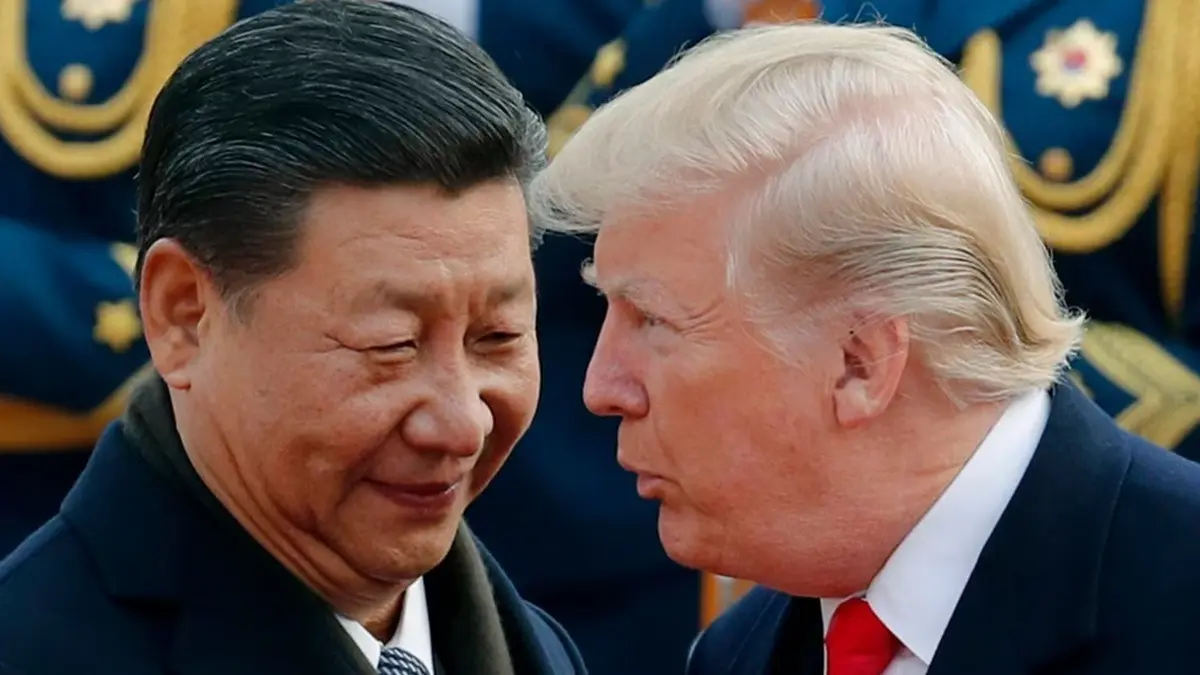Updated 12 May 2025 at 03:09 IST
Tariffs Down, Trade Up: US And China Reach Historic Trade Agreement
US and China make substantial progress in trade talks, possibly paving the way for a comprehensive trade deal.
- World News
- 3 min read

Washington: The United States and China have got a major breakthrough in their trade negotiations, hinting at a comprehensive deal that promises to reshape the economic relationship between the two nations. According to reports, after intense talks in Geneva, the two countries have reportedly agreed to reduce tariffs, increase market access, and strengthen intellectual property protections. The US-China landmark agreement is likely to mark a major shift in the trade dynamics between two of the world's largest economies.
As per experts, the deal is expected to provide a much-needed boost to global trade, which has been impacted by the ongoing pandemic and rising protectionism. By reducing tariffs and increasing market access, the agreement will enable American companies to export more goods to China, creating new opportunities for businesses and workers alike. The trade deal is the result of months of intense negotiations between the US and China. Both countries have made big concessions to reach a mutually beneficial agreement.
As per information, both nations reporting "substantial progress" on key issues. After two days of high-level talks in Geneva, American officials are cautiously optimistic about the prospects of a comprehensive trade deal. The negotiations, led by US Treasury Secretary Scott Bessent and Trade Representative Jamieson Greer, aimed to address the long-standing trade deficit between the two nations, which has become a major point of contention.
The trade deficit, currently standing at $1.2 trillion, has led to a national emergency declaration and sweeping tariffs imposed by President Donald Trump. However, Greer believes that the recent talks are a step in the right direction, indicating that the differences between the two nations were not as large as previously thought. Bessent echoed this sentiment, describing the talks as "productive" and thanking Switzerland for hosting the meetings.
Advertisement
Also Read | 'Don't Want Anyone to Mediate': India's Clear Message After Trump's Mediation Offer on Kashmir
US-China Trade Relations
The US-China trade relationship has been marked by periods of cooperation and conflict. Since China's entry into the World Trade Organization (WTO) in 2001, the two nations have become increasingly intertwined, with bilateral trade reaching almost $700 billion annually. However, the relationship has been strained by issues such as intellectual property protection, market access, and tariffs.
Advertisement
In 2020, the US and China signed a phase one trade deal, which required China to purchase $200 billion worth of US goods and services over two years. However, China failed to meet this target, and the trade war escalated under the second Trump administration. The US imposed tariffs on Chinese goods, while China retaliated with tariffs on US exports, including agricultural products and oil.
What's Next For US-China
The recent talks in Geneva represent a crucial step towards resolving the trade crisis. While details of the agreement are expected to be made public on Monday, sources suggested that the deal will involve reduced tariffs and increased market access for US companies. Greer asserted that the agreement is a step towards resolving the trade crisis, and Bessent noted that both he and Greer had briefed President Trump on the developments.
The possible agreement has big implications for the global economy. A reduction in tariffs and increased trade cooperation could lead to increased economic growth, job creation, and stability in the region. However, China has warned that it will not tolerate any attempts to compromise its interests, and will take "reciprocal countermeasures" if necessary.
Published By : Abhishek Tiwari
Published On: 12 May 2025 at 00:03 IST
